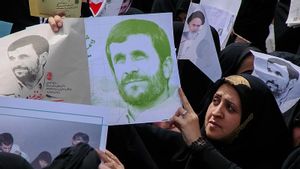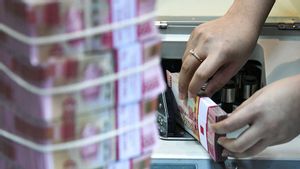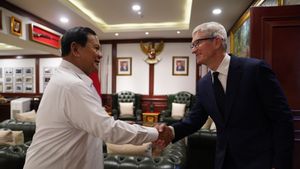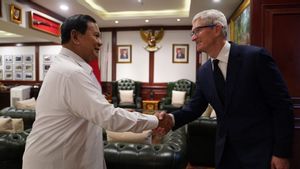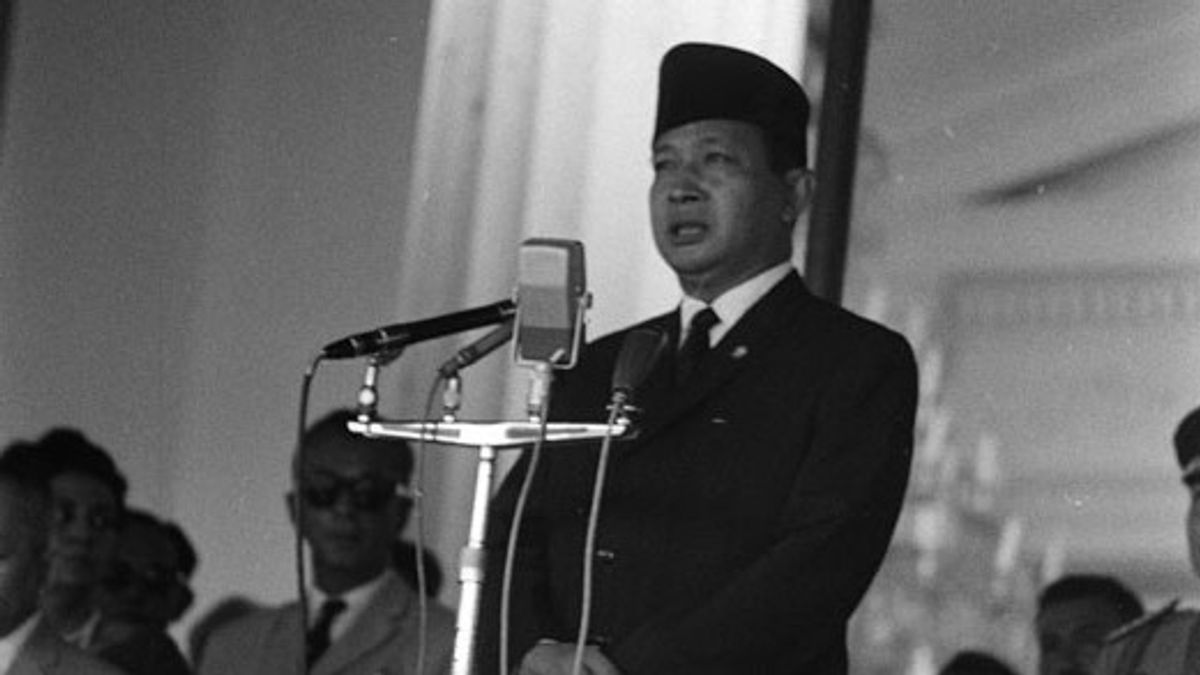
JAKARTA - For a country, the large number of imports of foreign products is a disaster. Many business sectors are out of business, the main symptom. Imports even harm the people, as well as the country. In Indonesia, the flow of imports is increasingly heavy. The condition is so sad. From basic commodities to daily necessities, many are imported commodities. During the New Order era (Orba), Suharto had already smelled this sign.
As the second President of Indonesia, Suharto launched the "Love Indonesian Products" campaign. He made this effort a reflection of loving the country. The transition process from Soekarno's Old Order (Orla) era to Soeharto's New Order era was one of the toughest periods of this nation.
Various policies - development and trade - were deployed after the crisis in the 1960s. Moreover, the economic conditions during the Orla era were not yet stable. As a result, change is the key. Since then, foreign policy under the Soeharto government was no longer confrontational, but more friendly. Likewise with economic policy, Indonesia tries to be more realistic and open up.
The lecture was also complemented by various fiscal and trade policies. The goal is to make state finances healthy. The government has begun to expand access to education, health facilities, build jobs, and establish various other facilities. Until intensifying their own love product campaign. Of course, all that is done is still in the concept of “trial and error.” Because there is still a lack of practical experience in building and running a government.
"So, for example, the development carried out by the New Order was too dominated and forced on macroeconomic development with a tip-down approach. Overall, although there are gaps here and there, it must be honestly acknowledged that there were the results of the development of the New Order in the 1970s. It cannot be denied, for example, that there have been improvements in people's lives compared to previous times, "said Firman Lubis in the book Jakarta 1950-1970 (2019).
This improvement can be felt by all Indonesian people. Mainly because of the opening of a wider range of jobs. The community then felt an increase in per capita income for a while.
Firman Lubis, who lived in the New Order era, honestly felt the impact himself in Jakarta. Even so, he admits that in the national map, Jakarta does get a big development pie, surpassing the development of other provinces. It may be that Jakarta is developing, but in other areas there are still many difficulties.
"However, behind the improvement in life, especially from an economic point of view, there are also some negative developments that began to appear in the 1970s. The gradual change of Soeharto's government to become a militaristic authoritarian had led to several fatal excesses. Among other things, which is quite severe is the increase in the practice of Corruption, Collusion and Nepotism (KKN), especially in the highest levels of government that peaked in the 1980s, ”added Firman Lubis.
As a result, the New Order government began to shut itself off from criticism. Those who were critical were silenced, the press was made loud and suspended. This case was compounded by repressive actions by the apparatus who were ready to act if there was an attempt to demonize the government. All of this became more complete when Indonesia's narrative of welcoming free trade began to become a threat from local entrepreneurs. In line with that, Suharto began the “Love Indonesian Products” campaign.
Love Indonesian productsDuring his presidency, the president who was nicknamed The Smiling General, often sparked the spirit of loving Indonesian products. At every opportunity, Soeharto even always slipped in the campaign. Love Indonesian products, said Soeharto, is a reflection of a nationalist mental attitude and love for the country.
In 1995, Soeharto launched the campaign when he gave a speech to 150 participants of the Indonesian National Private Broadcasting Radio Association (PRSSNI) National Conference, in Tapos, Bogor. Soeharto was aware that foreign-made products were free to enter Indonesia.
The product has also flooded the market. However, Soeharto was optimistic that the domestic industry could rise. According to him, one day domestic products can compete in quality and price with foreign products. In order to achieve this goal, Indonesians are reminded to first buy Indonesian products.
"If we leave our own products behind, the industry closes then unemployment arises, in the end there is poverty. This is not our goal, ”said Soeharto, quoted in the book of the Second President of the Republic of Indonesia, General HM Soeharto in the News (2008).
On that occasion, Soeharto also reminded that Indonesia's attitude in supporting free trade does not mean that Indonesia's philosophy is pointing towards a Liberalism system. This is because free trade is precisely where Indonesia can compete with other countries. Therefore, Soeharto advised the Indonesian people to have a strong mentality. Especially so that they dare to compete in terms of quality, cost, and so on.
The Indonesian president then advised the Indonesian people to be more observant about opportunities. Not only courage. Soekarno analogized that Indonesians should have a spirit like a fighter, not an amateur boxer who collapses at once.
"But use the martial arts style, which even though the body is not strong, but is able to overthrow Iawan," he said.
What Soeharto said was not just empty words. Long before inflating the spirit of loving Indonesian products at the PRSSNI event, Suharto had committed to seizing the share of exports since the early 1990s. It has been noted that dozens of local ceramic, glass and leather factories have been built to advance the country's export industry.
"From so many factories, there are three main products produced, namely: ceramics (from 18 factories), glass products (from 6 factories), and leather products (from 43 factories). The export prospects are quite encouraging. Ceramic products, for example, can be sold to Japan and the Middle East. In fact, leather goods can compete in Europe and America, "said the Director General of Various Industries at that time, Soesanto Sahardjo, quoted by Suhardjo HS and Priyono B. Sumbogo in their writing in Tempo Magazine entitled Seizing Export Share (1990).
Illustration:
1.2. Soeharto with his guests | geheugen.delpher.nl
3. The moment Soeharto gave a speech | geheugen.delpher.nl
The English, Chinese, Japanese, Arabic, and French versions are automatically generated by the AI. So there may still be inaccuracies in translating, please always see Indonesian as our main language. (system supported by DigitalSiber.id)


